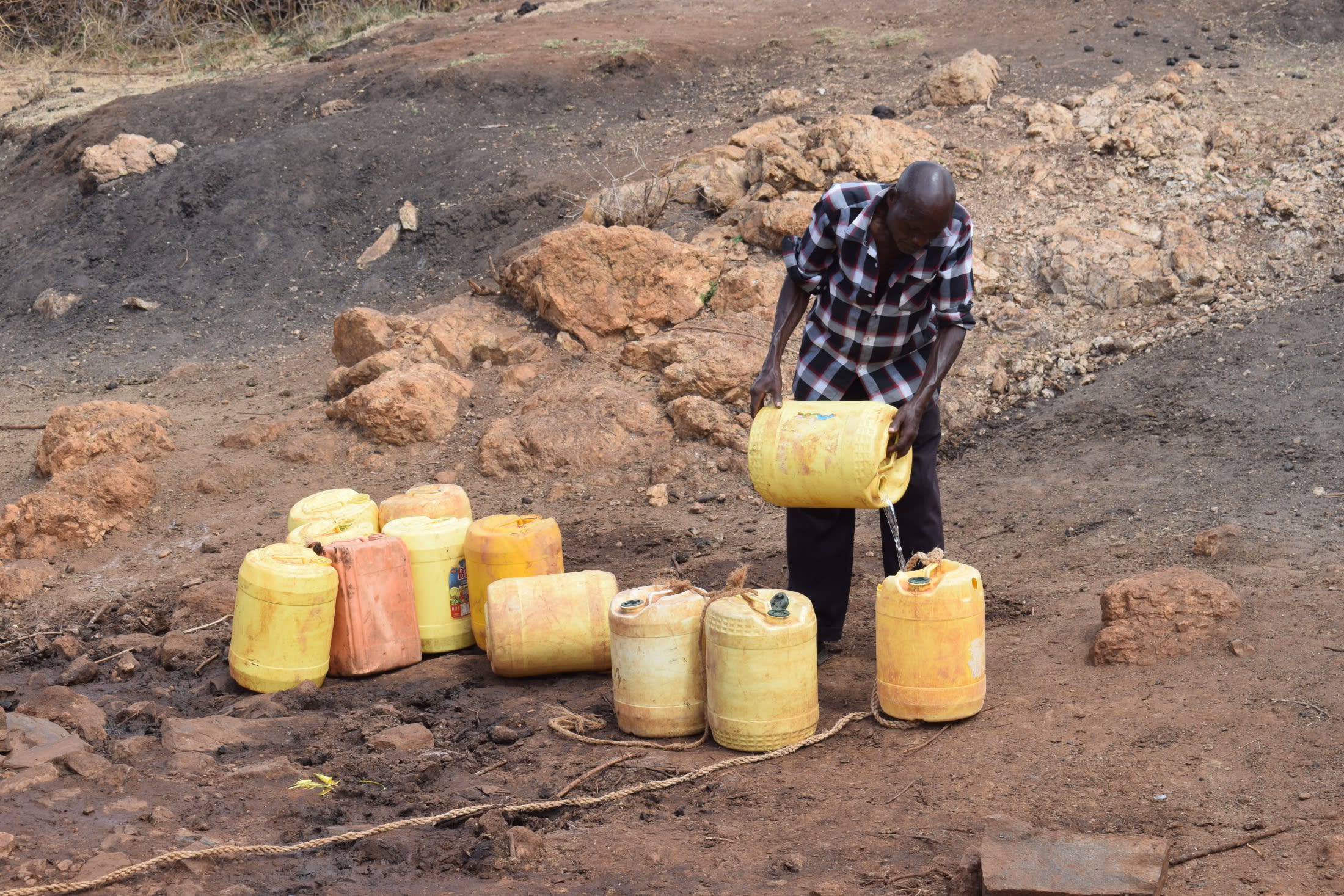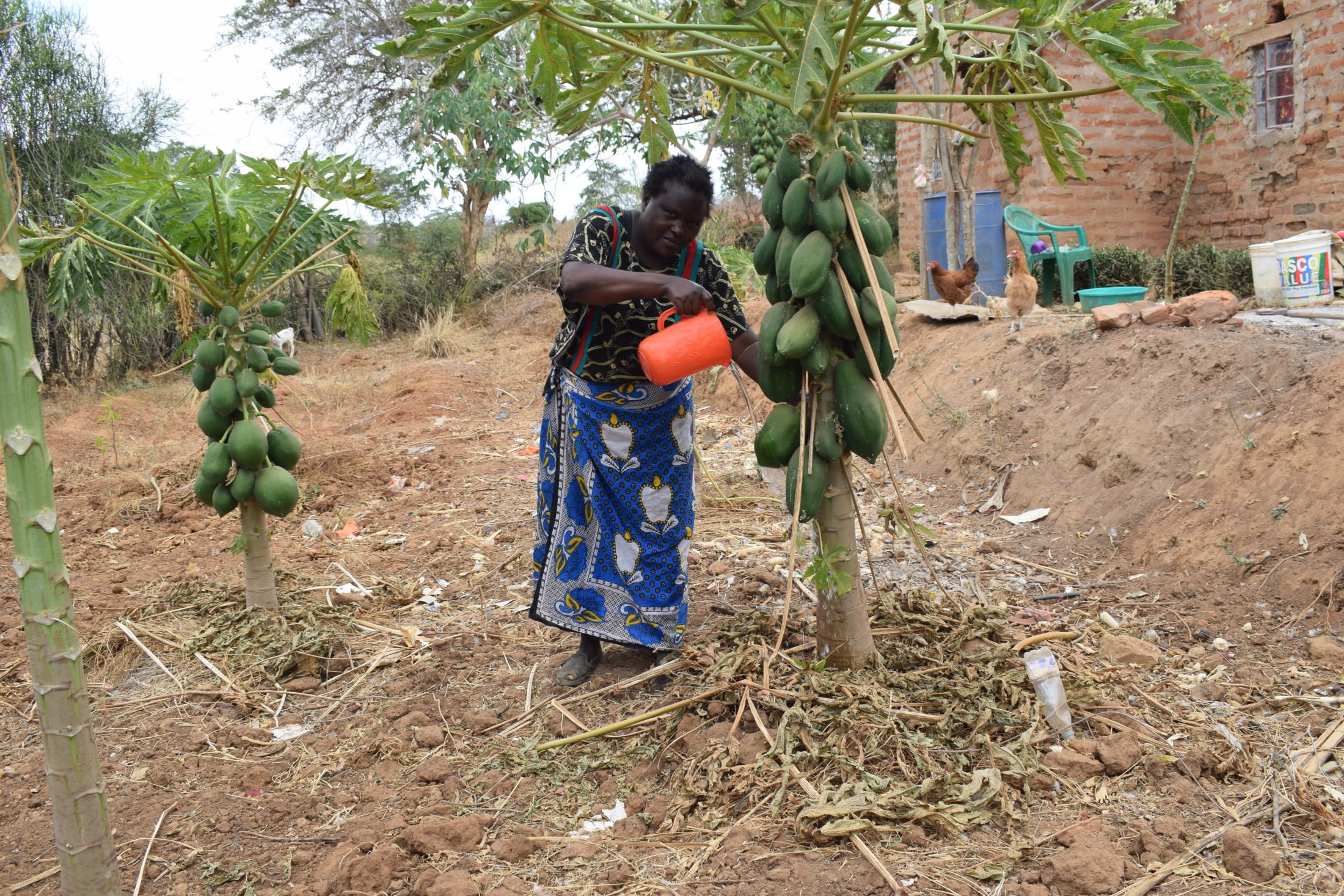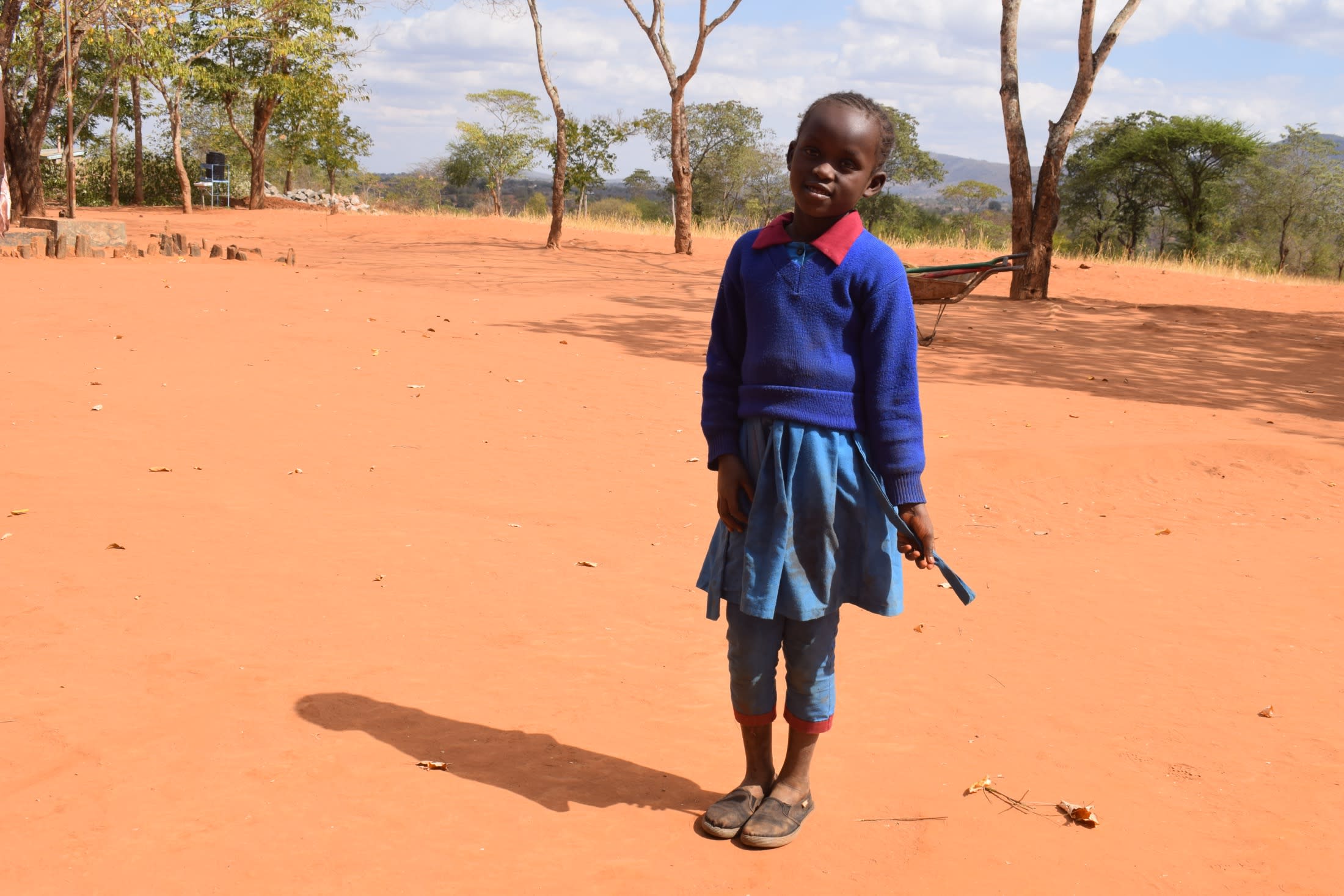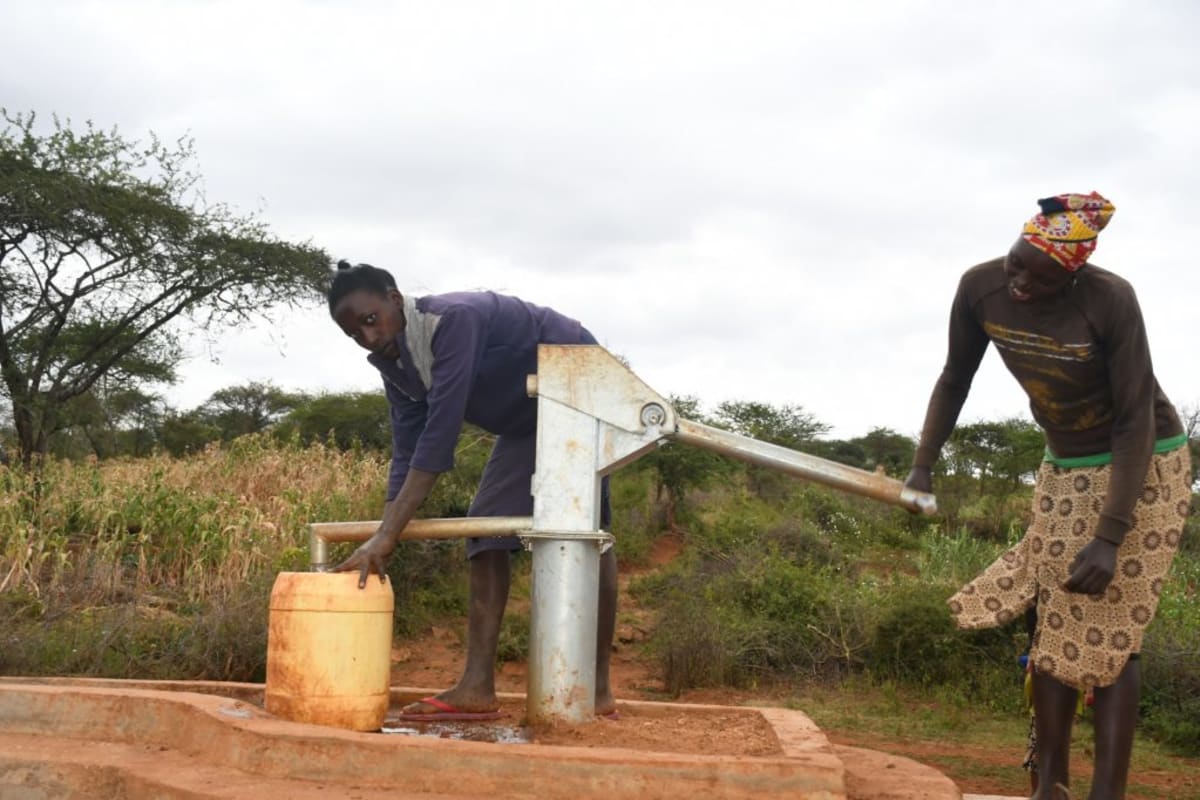In the village of Kitile, most of the 400 community members wake up at dawn to fetch water from the river Athi. The river is their only reliable water source, and although it is an arduous task, they must do it since they have no alternative.
But even after all the effort, the water is not safe for community members to consume. At times the river changes color due to area cities dumping their sewage into the river without considering human beings depending on this water. Since community members have no way of treating the water to make it safe, they are left to consume it. It is risky since they know they'll likely contract waterborne diseases like cholera, typhoid, brucellosis (bacterial infection from animals), or dysentery.
The distance of up to 6 km (3.75 miles) each way is a significant obstacle for community members trying to collect water, and often, household activities go undone and children miss school due to exhaustion. It is especially difficult for small children, the elderly, and those who are ill unless they can afford to buy a donkey to haul water or borrow one with the condition that they will share the water fetched. The only other option is to purchase jerry cans full of water, which is a costly endeavor that most in this community cannot afford.
Some community members, like George Kasomo (seen in the photo below), are fortunate to afford the assistance of a donkey to cart full water containers home from the river.

But others like farmer Winfred Muinde, 44, watering her papaya tree in the photo below, are not as fortunate.
"Both adults and children suffer a lot, and they have to drink water from River Athi, which is very far," said Winfred. "Many community members who fetch water from the river have little or no capacity of treating it, [and] hence [they] consume it without any treatment, which often leads to contracting water-related diseases. The times are very hard now for every community member who is not able to buy water for their children to carry to school."

School children also feel the burden of collecting water each day. Starmy P. (in the photo below), 7, said, "How I wish we could have a water point near us to access clean water to carry to school. Getting clean water nearby will assure that we don't get so thirsty in school as we currently do."

A hang-dug well in this community will mean people will have direct access to safe, sufficient water any time they need it, and adults and children alike can get back to their daily tasks.
Reliable Water for Kitile
Our main entry point into this community has been the Botela Women's Self-Help Group, which comprises households working together to address water and food scarcity in their region. These members will be our hands and feet in constructing water projects and spreading the message of good hygiene and sanitation to everyone.
Hand-Dug Well
This particular hand-dug well will be built adjacent to a sand dam project, which will supply clean drinking water once it rains. We have provided the group with the tools needed for excavation. With the guidance of our artisans and mechanics, the excavated well will be cased, sealed with a well pad, and then finished with a new AfriDev pump.
Excavation takes a month or more on average, depending on the nature of the rock beneath. Construction of the well lining and installation of the pump takes 12 days maximum. The well will be lined with a concrete wall including perforations so that once it rains, water will filter in from the sand dam.
This well will bring clean water closer to families.
New Knowledge
These community members currently do their best to practice good hygiene and sanitation, but their severe lack of water has significantly hindered reaching their fullest potential.
We will hold hygiene and sanitation training sessions with the Botela Women's Self-Help Group and other community members to teach essential hygiene practices and daily habits to establish at the personal, household, and community levels. This training will help to ensure that participants have the knowledge they need to make the most out of their new water point as soon as the water is flowing.
One of the most important topics we plan to cover is handling, storage, and water treatment. Having a clean water source will be extremely helpful, but it is useless if water gets contaminated when it is consumed. We will also emphasize the importance of handwashing.
The community and we firmly believe that all of these components will work together to improve living standards here, which will help to unlock the potential for these community members to live better, healthier lives.
We typically work with self-help groups for 3 to 5 years on multiple water projects. We will conduct follow-up visits and refresher training during this period and remain in contact with the group after all of the projects are completed to support their efforts to improve sanitation and hygiene.

 Protected Dug Well
Protected Dug Well
 Rehabilitation Project
Rehabilitation Project





























